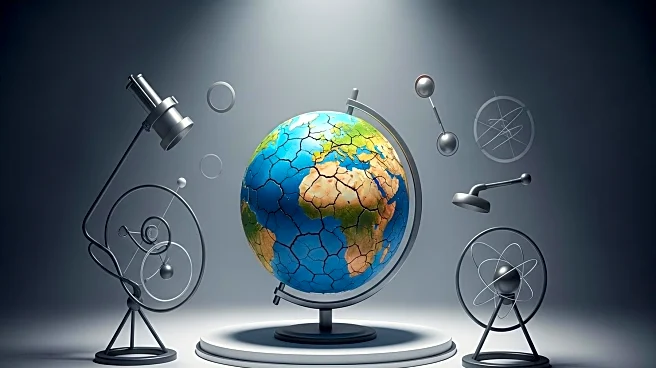What's Happening?
A group of over 85 climate scientists has publicly criticized a report from the Trump administration, which questions the severity of global warming. The report, issued by the Department of Energy, has been described by these scientists as biased, error-ridden, and unfit for guiding policy. The scientists argue that the report fails to adequately represent the current scientific understanding of climate change and relies on discredited research. The report was authored by five researchers selected by U.S. Energy Secretary Chris Wright and published after the White House dismissed more than 400 scientists working on the sixth National Climate Assessment. The Environmental Protection Agency has used this report to support its proposal to repeal the endangerment finding, a key determination that greenhouse gases pose a threat to human health and the environment.
Why It's Important?
The criticism of the Trump administration's climate report highlights ongoing tensions between scientific communities and government policies regarding climate change. The report's conclusions, which suggest that carbon dioxide-induced warming might be less economically damaging than believed, could influence public policy and environmental regulations. This has significant implications for U.S. climate policy, as it may affect efforts to curb fossil fuel use and promote clean energy. The administration's stance on climate change, including withdrawing from the Paris climate agreement and halting clean-energy projects, has been controversial and could impact the country's environmental and economic future.
What's Next?
The public comment period for the Department of Energy's report has seen over 2,400 submissions, indicating strong public interest and concern. The agency has stated it will review and engage with substantive comments after the period ends. This could lead to revisions of the report or influence future climate policy decisions. The scientific community may continue to push for more accurate representation of climate science in government reports, potentially leading to further public and political debate.
Beyond the Headlines
The controversy surrounding the report underscores the ethical and scientific challenges in addressing climate change. The rejection of established scientific consensus by the administration raises questions about the role of science in policy-making and the potential long-term impacts on environmental and public health. The debate also reflects broader cultural and political divides over climate change and environmental responsibility.









